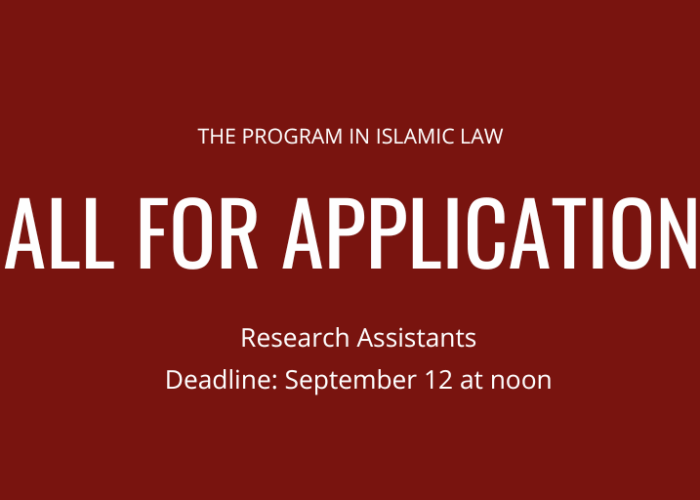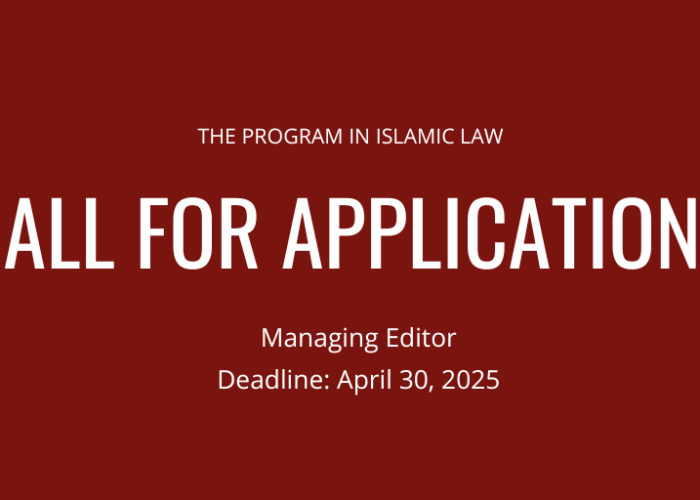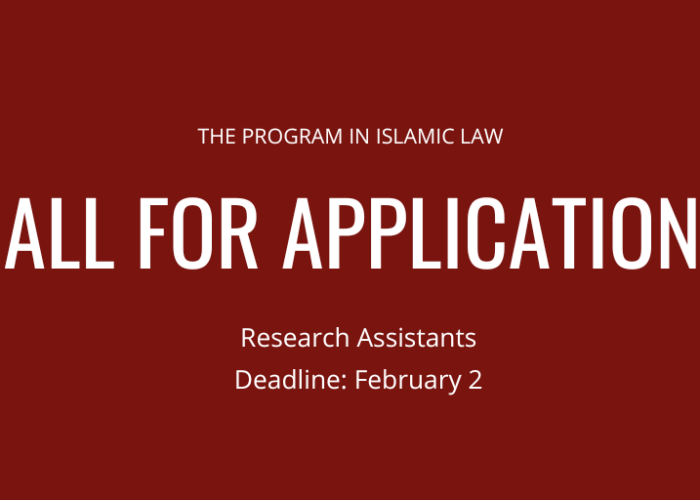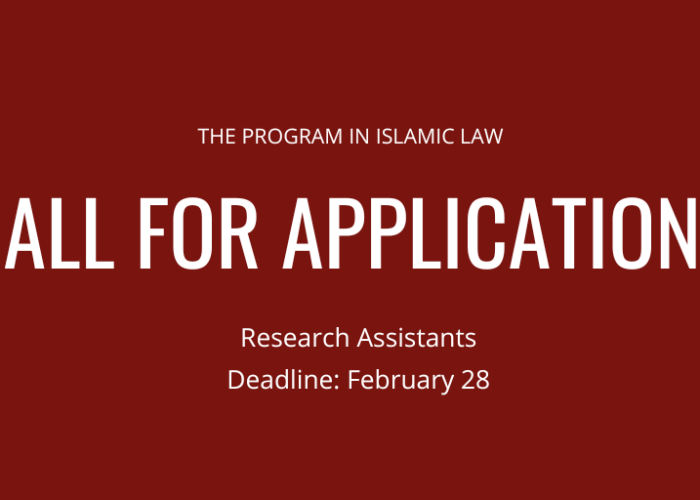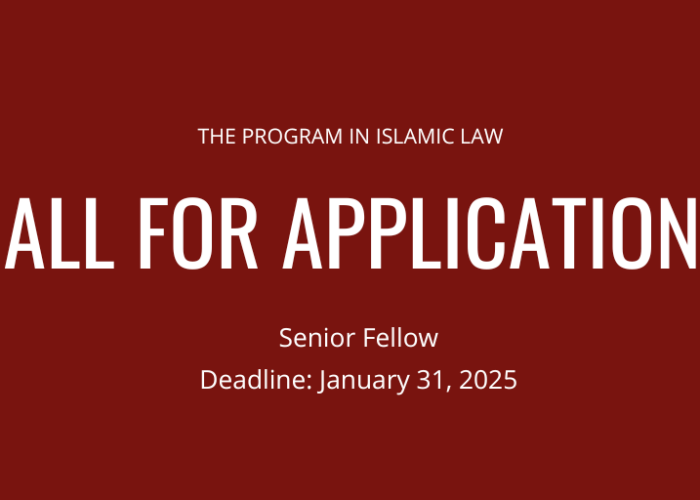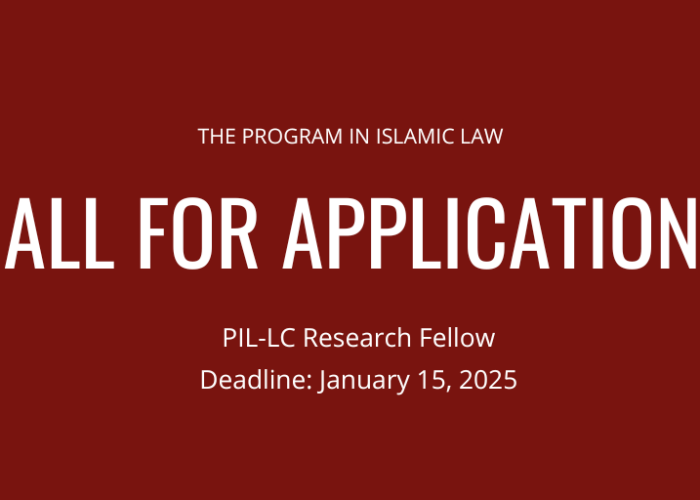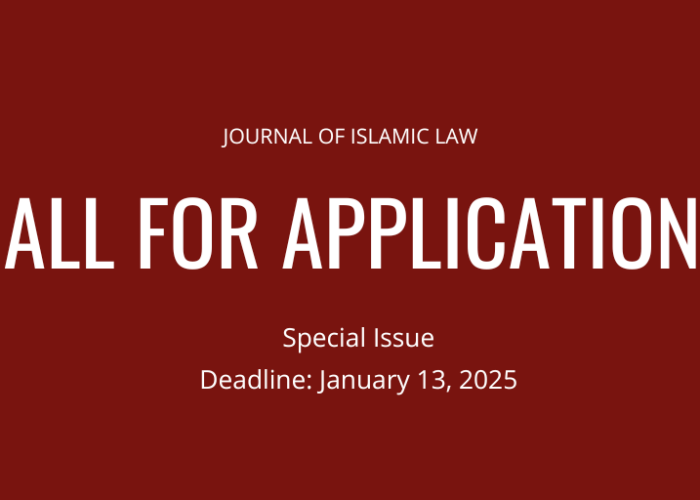In collaboration with the John W. Kluge Center at the Library of Congress, the Program in Islamic Law at Harvard Law School is pleased to invite applications for the 2025-2026 PIL–LC Research Fellowship (due: January 15, 2025). This newly offered fellowship is designed to provide an intellectual home to promising young scholars in Islamic legal studies, to advance their research, and to contribute to the intellectual life of the Program, the greater Harvard community, and the Library of Congress community. The unique opportunity afforded by this joint fellowship award allows the selected fellow to pursue independent research on Islamic law and history that utilizes the extensive collections of the Harvard Libraries and the Library of Congress. The PIL–LC Research Fellowship award is a full-time residential fellowship at Harvard Law School (for nine months, during the academic year) and at the John W. Kluge Center at the Library of Congress (for three months, the following summer).
Successful applicants will have completed an advanced degree (JD, PhD, or SJD) before the start of the fellowship, and plan to pursue a scholarly research agenda in Islamic law that engages legal history, law and society, or comparative law approaches. Fellows will receive a stipend for the duration of the fellowship.
To apply for this fellowship, please submit the following materials via the research fellowship online application form by January 15, 2025:
1. a curriculum vitae
2. a research proposal consisting of
- a single-paragraph abstract of your proposed research
- a research statement, not to exceed 1500 words (3 single-spaced pages), and
- a bibliography of works you have consulted that describes the proposed work during the fellowship period.
The proposal should outline research in your area of expertise or interest related to contemporary or historical issues of Islamic law that can be accomplished during the fellowship term; projects are to utilize the Harvard and Library of Congress collections to advance a novel contribution to scholarship through research in Islamic law, with a legal history, comparative law, or law and society approach.
3. an explanation of why Harvard/PIL and the Library of Congress are the required venue for your research (e.g., identification of specific Harvard/PIL resources and Library of Congress collections that are necessary to pursue the research project)
4. a writing sample of no more than 25 pages in length, in English (which can be a recent publication or unpublished work; works-in-progress are especially welcome)
5. 3 reference letters from recommenders who are to upload letters directly at the referee link.
A panel of scholars at both Harvard and the Library of Congress will review your application materials. The panel will consider your application in relation to numerous other proposals. Evaluation criteria will include:
- The significance of the contribution that the project will make to knowledge in the field
- The quality or the promise of quality of the work
- The quality of the conception, definition, organization and description of the project
- The likelihood that the applicant will complete the project
- The appropriateness of the research for Harvard/PIL resources and the Library of Congress collections
Please ensure that your references have ample time to consider and comment on your proposal. Letters of reference are more highly regarded if they address the specific proposed activity and how well the candidate is suited to undertake it, as opposed to letters that verify character, limit comments to previous work, or make only general observations on the topic.
Following a process of committee review, applicants will be notified of decisions in February 15.
Apply today!
Deadline: January 15, 2025





